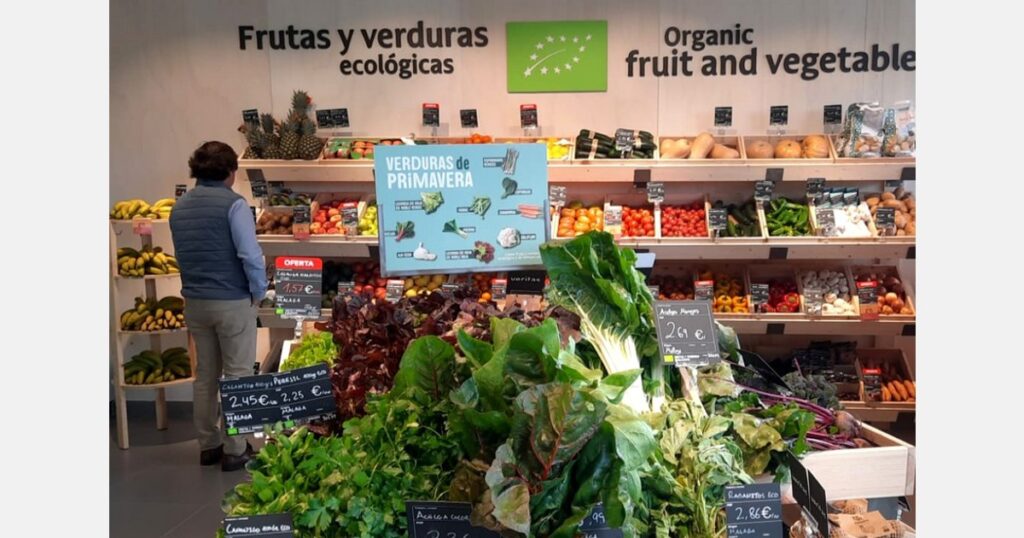“In geographical terms, there’s an interesting difference between production and consumption which can be seen from several approaches. In the case of the certified acreage, Oceania is not relevant, because its large acreage consists mainly of vast pasture areas for its organic livestock. And when we say vast, we really mean it, with some farms being the size of whole Spanish provinces,” says Diego Granado, secretary general of Ecovalia.
“China is the world’s third largest market, but we must take its population into account. We are talking about 1,400 million people (the U.S. has 330 million and the EU 450 million), so it only takes a bit of development for its organic production to stand out on a global level.”
“The European Union is both a key producer and a key consumer, as its production, excluding the pastures of Oceania, is the largest in the world. It is diverse, and the EU’s consumption as a whole ranks second, almost on a par with the U.S.. The organic market remains export-oriented, especially if we look at it from a Spanish perspective; however, having local production is highly appreciated, as shown by the rising domestic consumption figures, and there is still plenty of potential for further growth.”
“In fact, in the last year, the market for organic products in Europe has resumed its upward trend after the stagnation (not recession) of some important markets, such as France and Germany. At a European level, the value of organic product sales exceeded 52 billion, with Germany and France leading the way.
Looking at per capita spending on organic consumption, the global ranking is led by Switzerland, with 437 Euro, followed by Denmark (365 Euro), Austria (274 Euro) and Luxembourg (259 Euro). If we look at the share of the organic market in the total market, the global leader is Denmark (12.0%), followed by Austria (11.5%) and Switzerland (11.2%).
“In Spain, the organic market has grown by 6.2% in a difficult environment, reaching a value of close to 3,000 million Euro, with a per capita consumption of 64 € per year. The increase has been remarkable, considering that in 2014, the per capita consumption still stood at 26 € per year,” he says.
“Organic consumption in Spain has been growing steadily, with a forecast annual increase of 10% in the coming years. This is partly a result of consumers being increasingly aware of health and sustainability issues. The Spanish organic market is also expected to benefit from the greater supply of organic products in supermarkets and the rise of e-commerce, which facilitates access to these products.”
“In the fruit and vegetable category, there has been a notable growth in both organic acreage and production”
“In the fruit and vegetable category, there has been a notable growth in both organic acreage and production. In recent years, Spain has recorded a significant increase in the number of hectares devoted to these crops. The nut production stands out the most, with 290,086 hectares, followed by citrus, with 25,812 hectares, fruit trees, with 9,293 hectares, bananas and subtropical crops, with 9,893 hectares (which have grown by 26%) and vegetables, with 25,380 hectares. Therefore, Spain, especially Andalusia, Murcia and the Valencian Community, can be considered the organic garden of Europe.”
Lastly, there is a niche organic market for biodynamic products. “The biodynamic production is taken into account for organic production statistics, as it is certified as organic by Regulation (EU) 2018/848 of the European Parliament and of the Council, not because it is biodynamic,” says Diego. “For now, at Ecovalia, we have no projection data for Spain or Europe, but we do see a certain exhaustion of the model; a result of the bubble that this product category has been experiencing in recent years. The issue is that the market has been flooded with biodynamic products that complied with the private regulations that protected them, but which were far removed from the spirit of the biodynamic standard.”
Ecovalia
[email protected]
www.ecovalia.org
Source link : https://www.freshplaza.com/europe/article/9669368/despite-having-found-ourselves-in-a-difficult-environment-the-organic-market-in-spain-has-continued-to-grow/
Author :
Publish date : 2024-10-17 12:11:00
Copyright for syndicated content belongs to the linked Source.
